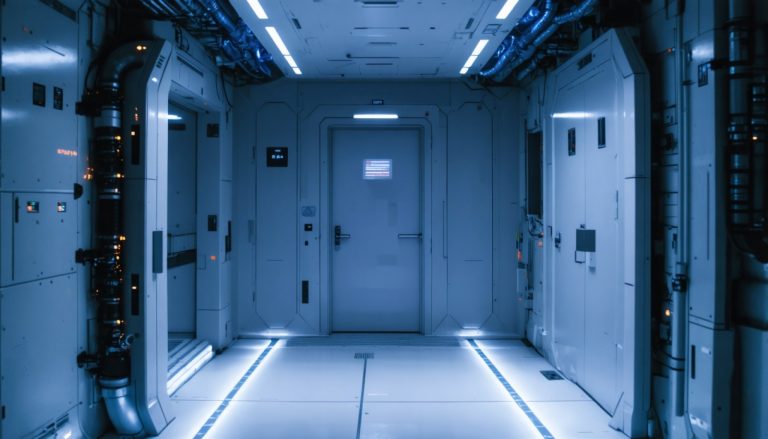Zamora County Takes a Major Step Towards Eco-Tourism
The Diputación de Zamora has launched a bidding process for the acquisition of thirty electric bicycles aimed at enhancing sustainable transportation between Ribadelago and the historical center of Puebla de Sanabria. This initiative is part of the broader Sustainable Tourism Plan for the Sanabria region.
The pilot project is designed to establish an eco-friendly transport service, connecting Ribadelago to Puebla, with aspirations to expand to other nearby municipalities. The key goal is to decrease the number of visitors who rely on private vehicles to access the stunning Lago de Sanabria, thereby mitigating the negative environmental impact associated with such traffic.
Electric bicycles offer a practical and safer alternative for promoting sustainable mobility. They make it easier to tackle steep inclines without excessive effort, making them perfect for short distances that are too far to walk yet too short to drive.
The Junta has backed these plans with significant funding, approving €1,732,722 for the Sustainable Tourism Plan in Sanabria. The project, which includes the electric bicycles, is budgeted at €148,800 and is fully financed by the European Union’s NextGeneration Fund.
A partnership agreement signed in early 2024 outlines the responsibilities of local municipalities as they work towards implementing this renewable energy transport system. The plan aims to see the electric bikes in operation within a maximum of ten months, supported by essential infrastructure, such as parking and charging stations.
Revolutionizing Eco-Tourism: Zamora County’s Electric Bike Initiative
Introduction
Zamora County is making significant strides toward eco-tourism with a newly launched initiative designed to promote sustainable transportation. The Diputación de Zamora has initiated a bidding process for the acquisition of thirty electric bicycles, intended to create a green transport service connecting Ribadelago and Puebla de Sanabria. This effort is part of a broader Sustainable Tourism Plan aimed at preserving the stunning natural environment of the Sanabria region while providing visitors with eco-friendly travel options.
Features of the Electric Bicycle Initiative
The electric bicycles represent a strategic choice for improving mobility in the area. Here are some key features of this initiative:
– Sustainable Mobility: The bicycles provide a cleaner alternative to cars, helping to reduce carbon footprints among visitors traveling to the Lago de Sanabria, one of the region’s major natural attractions.
– User-Friendly Design: Electric bicycles are designed to make riding easier, particularly in hilly areas that characterize Sanabria. They offer an ideal means of transport for short distances, effectively bridging the gap between walking and driving.
– Infrastructure Development: Alongside the bicycles, essential infrastructure such as parking and charging stations will be installed. This development will ensure that visitors can conveniently use and maintain the bicycles.
Use Cases and Benefits
1. Tourism Enhancement: By incorporating electric bicycles into the transportation system, Zamora is likely to see an increase in eco-conscious visitors who prioritize sustainability in their travel choices.
2. Local Integration: The initiative aims to foster interconnectivity between Ribadelago and Puebla, as well as potentially expanding services to surrounding municipalities, promoting local economies and communities.
3. Health Benefits: Encouraging cycling as a mode of transport can promote healthier lifestyles for both residents and tourists, contributing to public health in the region.
Market Insights and Funding
The project has garnered significant support, with a total budget of €148,800 funded entirely by the European Union’s NextGeneration Fund, as part of the larger €1,732,722 allocated for the Sustainable Tourism Plan in Sanabria. This financial backing highlights the EU’s commitment to fostering sustainable tourism across its regions.
Pros and Cons
Pros:
– Reduces reliance on fossil fuels and private vehicles.
– Supports local economies by promoting tourism.
– Enhances visitors’ experience through eco-friendly transport options.
Cons:
– High initial investment in infrastructure.
– Maintenance and operational costs may arise.
– Dependence on weather conditions may impact bicycle usage.
Limitations and Challenges
While the initiative is promising, it faces potential challenges, including:
– Operational Feasibility: Ensuring the continuous operation and maintenance of electric bicycles requires ongoing funding and resources.
– Public Awareness: Generating sufficient awareness among residents and tourists about the availability and benefits of the electric bike service is crucial for its success.
Future Predictions and Sustainability Trends
As eco-tourism continues to grow, initiatives like Zamora’s electric bicycle project could serve as models for other regions looking to balance tourism with environmental stewardship. As public awareness of climate issues increases, projects that offer sustainable alternatives are likely to attract more visitors who prioritize eco-friendliness in their travel plans.
Conclusion
Zamora County’s electric bicycle initiative represents a major advancement in fostering sustainable tourism while enhancing connectivity within the Sanabria region. With dedicated funding and a clear vision, this project aims not only to reduce environmental impact but also to transform the way visitors experience the natural beauty of Lago de Sanabria and its surroundings. To learn more about sustainable tourism efforts in Spain, visit Spain Travel.



